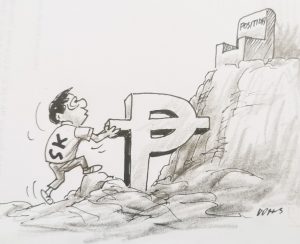The Sangguniang Kabataan (SK) elections serve as a crucial platform for nurturing young leaders and engaging them in local governance. However, the increasing prevalence of vote buying has cast a dark shadow over these elections, compromising their integrity and impeding the development of a responsible and accountable youth leadership.
A long-term consequence of vote buying in SK elections is the misallocation of leadership positions based on wealth rather than merit or competence. When candidates resort to buying votes, capable and deserving young leaders may lose their chance to serve their community effectively. As a result, the youth are deprived of the opportunity to witness true leadership qualities, thoughtful decision-making, and responsible governance. Moreover, it discourages young individuals from pursuing personal growth, education, or skills, as financial resources tend to take precedence over intellectual capabilities.
Vote buying also erodes the principles of fair and transparent democratic processes.
Elections are meant to be a reflection of the collective will of the people, facilitating an open and just selection of leaders. However, when votes are bought and sold, this principle is subverted, diminishing the power of genuine public opinion. Ultimately, this practice undermines the foundations of democracy by concentrating power in the hands of those who can afford to buy votes, rather than those who genuinely represent the concerns and aspirations of the community.
Perhaps the most concerning aspect of vote buying in the last SK elections is its perpetuation of a culture of corruption among the youth. When young individuals witness this unethical behavior being rewarded with positions of power, it sends a disheartening message that corruption is an accepted means to achieve personal and political goals. This degradation of moral values ultimately affects society, seeping into other realms and creating a cycle of corruption that becomes harder to break. If we are to cultivate a responsible and upright generation of leaders, it is imperative to eradicate this culture of corruption in the form of vote buying.
The prevalence of vote buying even in SK elections poses a significant threat to the integrity and development of the youth’s leadership potential. This practice not only demeans the spirit of fair elections but also hampers the overall progress of society. Only through concerted efforts can we hope to reverse the corrupting influence of vote buying and restore the true purpose and potential of SK elections.




